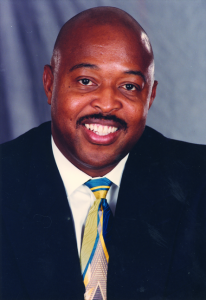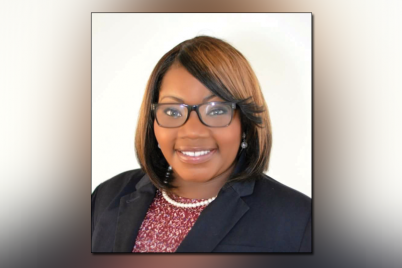Disney’s ‘Ruby Bridges’ is a 1998 television film based on the true story of Ruby Bridges, one of the first Black students to attend integrated schools in New Orleans in 1960.
BY GOLIATH J. DAVIS, III, Ph.D., Contributor
On April Fool’s Day, the Tampa Bay Times published a letter from Pinellas County School Superintendent Kevin Hendrick explaining his position regarding the “Ruby Bridges” film ban.
Although the superintendent assertively states the film was not and is not banned, ironically, his column supports the facts delineated in my columns and others in the Tampa Bay Times.
As I indicated in my column, “Truth, justice and the district way,” if the film had not been banned, there should have been an immediate, formidable statement to that effect. However, that did not occur until now. The superintendent wrote, “to be clear it is not banned in our schools.” He further states he would like to work with the community and avoid what he describes as “contentious rhetoric.”
While I agree some may view the ongoing conversations as “contentious,” I would not label them as rhetorical. Individuals committed to the superintendent’s belief/value that “diverse instructional materials … develop students to be well-rounded citizens” argue this position with passion and conviction. And if the superintendent had immediately acknowledged what he now clearly states, i.e., the film “is not banned in our schools,” perhaps the contentious conversations could have been avoided.
To his credit, Superintendent Hendrick is taking responsibility in his column for the current situation, writing, “…we have made mistakes in our communication and timing … for this, I take responsibility.” His delayed statement as the superintendent was further complicated by an email sent to the complaining parent by a ranking district administrator that clearly stated the film would no longer be used to support the K-5 curriculum.
This action calls into question the district’s recently released “Frequently Asked Questions and Answers” document that the film is not banned. Perhaps a more accurate statement should be that the ban has been lifted. It has obviously taken some time for the district to figure out how to maneuver the turbulent waters, but it defies logic to suggest the film was never banned, even if only by what the district asserts was a miscommunication.
In addition to asserting his belief in diverse instructional materials, Superintendent Hendrick also wrote he believes curriculum must follow state standards, instructional materials must be age-appropriate and a parent has the right to advocate for their child and follow the law.
Given our current political climate and the vigorous crusades by some to distort, deny and eradicate non-Eurocentric history and messages from our educational institutions, all of the superintendent’s aforementioned beliefs will inevitably present him with more leadership challenges as they beg the following questions: What curriculum and whose standards? Who and by what criteria is age appropriateness determined? Can one parent usurp the rights and desires of other parents? Should immoral, divisive laws enacted for the privileged and special interest groups be blindly followed?
The current situation, locally, statewide, and nationally presents leaders with a host of challenges and moral dilemmas. As a person of conviction and new leader on the school superintendent stage, I believe Kevin Hendrick is working to find his footing and to balance his convictions with mandates imposed by the state, school board, other governmental entities, special interest groups and parents. He must not forget he represents multiple constituencies.
The single parent seeking the removal of the “Ruby Bridges” film from the K-5 curriculum and having it assigned for 8th-grade students on the basis of language and harm to scholars is attempting to utilize special interest legislation and policies. I question her film rating credentials, as well as those of the committee assigned to review the film.
At the end of the day, it will all boil down to one’s opinion as to what age group should watch the film, but there can be no real doubt as to the film’s contribution to learning. In fact, before our current culture wars and Mom for Liberty movement, the film has been shown for years at Northshore Elementary with no adverse impact reports. Our scholars are capable, compassionate, and intelligent. We adults seem to have the problem.
Superintendent Hendrick wrote in his column: “We need to remain focused on our core mission, teaching and learning.” I remind him that African-American history, Native-American history, Hispanic history and other issues under attack are American history and should be taught and learned. Leaders must confront, advocate, and challenge. Let us not forget that slavery and segregation were once lawful. But through confrontation, advocacy, and challenge, they are now unlawful.
The recognition of the fact that one can obey the law and confront and seek to reform bad laws is not mutually exclusive. True leaders are committed to both following just laws and working to reform unjust laws, policies, and procedures.
Lastly, given our core mission is teaching and learning, once again, I renew my three-year appeal and request the district act to change the trajectory of teaching and learning at Lakewood High School. All of the academic components, traditional, journalism and the once coveted CAT program need attention.
Paging “Doctors” Hendrick and Woodford, you are needed in academic reconstructive surgery at Lakewood High.
The school will review the film today, April 3, at 4:30 p.m. at North Shore Elementary, 200 35th Ave. NE in St. Petersburg. The public is welcome but cannot comment.










A well written article.